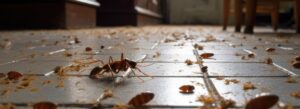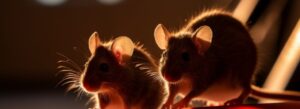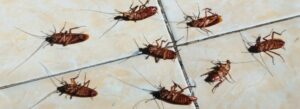From the Experts at Innovation Pest Control – Your Local Wasp Specialists in Kent
At Innovation Pest Control, we’ve removed more ground wasp nests than most people have had hot dinners. From small back gardens in Ashford to sprawling farmland in Tenterden, we know what you’re up against — and we know how to handle it safely.
This guide is written for homeowners across Kent who’ve noticed buzzing coming from the lawn, compost bin, or even under the decking. If you’re dealing with aggressive wasps and not sure what to do next — read on.
We’re not here to scare you. We’re here to help.
So, What Exactly Are Ground Wasps?
When people think of wasp nests, they imagine them hanging from trees or tucked into loft spaces. But not all wasps build nests above ground.
Some of the most common wasps we deal with in Kent nest underground, especially:
- Vespula vulgaris – The Common Wasp
- Vespula germanica – The German Wasp
- Dolichovespula saxonica – The Saxon Wasp (less common but growing)
These species belong to the Vespidae family — an incredibly successful group in the order Hymenoptera, which also includes ants, bees, and other stinging insects.
They’re what we call eusocial insects: that means their colonies have a queen, workers, and males, all working together in a highly coordinated system. You’ll rarely see this kind of structure outside the insect world — and it’s one reason wasp infestations can scale quickly.
What Does a Ground Nest Look Like?
Here’s the thing — you probably won’t see the nest itself. What you’ll notice is behaviour:
- Wasps flying in and out of a small hole in the soil or under a shed
- Constant activity around the base of a tree, compost bin or paving slab
- Increased aggression when you walk past
- Buzzing sounds beneath decking or lawn edges
If you’ve seen these signs, chances are high you’ve got a ground nest, and it’s time to act. And fast.
What’s Inside the Nest?
Ground nests are built in existing cavities — often in disused animal burrows, gaps in the soil, under old wood, or inside compost heaps. Here’s a breakdown of what’s inside:
- Eggs laid by the queen deep within the colony
- Larvae fed by workers on chewed-up protein sources (insects, meat scraps)
- Pupae, which mature into adult wasps
- Adult workers, scouts, and defenders — armed with venomous stingers
The nest itself is built from a paper-like substance made by chewing wood fibres and mixing them with saliva — another reason why untreated fences and decking become raw materials.
Why Are Ground Wasps Dangerous?
Put simply: you can’t see them until it’s too late.
Wasps are highly territorial. Step too close, and you’ll trigger a coordinated response. We’ve responded to cases where:
- Dogs disturbed a nest while digging
- Kids got stung mowing the lawn
- DIYers unknowingly opened up a colony while working under a shed
Unlike bees, wasps don’t die after stinging. They can sting repeatedly — and their venom contains powerful chemicals that trigger pain, swelling, and, for some people, dangerous allergic reactions.
Why They Exist (and Why They Matter)
While we’re in the business of wasp control, we also know that wasps aren’t just pests. In fact, they’re essential to the balance of nature.
They contribute to:
- Pollination – while they don’t carry pollen as efficiently as honey bees, they do feed on nectar and visit flowers, especially in fruit trees and crop fields.
- Predation – wasps hunt and kill harmful insects like aphids, beetles, and caterpillars, making them useful in biological pest control.
- Foraging – their need for sugar and protein fuels their activity, meaning they clear up rotting fruit, dead insects, and even animal carcasses.
Their role in the ecosystem is complex, but when they nest near your home — especially if you’ve got pets or children — their predatory instinct becomes a real danger.
DIY Ground Wasp Removal: Yes or No?
Here’s the honest truth: it’s usually a bad idea.
But if you’re determined, here are a couple of lower-risk options (best used in early-stage nests only):
Soapy Water
- Mix warm water with washing-up liquid
- Pour directly into the nest entrance at dusk
- Cover with a bucket or bowl
This suffocates the wasps — but may not penetrate deep enough to reach pupae or larvae.
Wasp Powder (Insecticidal Dust)
- Apply after dark using gloves and a mask
- Use a puffer to insert powder into the entrance
- Retreat to a safe distance
Always follow the label — and keep children and pets away.
What NOT to Do
- Don’t pour petrol down the hole (seriously — we’ve seen this, it ends badly)
- Don’t light fires
- Don’t block the entrance before treatment — they’ll dig their way out
- Don’t rely on vinegar or essential oils
This isn’t Instagram DIY. It’s a live, aggressive arthropod colony with thousands of defenders.
When to Call Innovation Pest Control
If the nest is:
- Larger than a football
- Near a doorway, play area or footpath
- Causing stings or pet injuries
- Not responding to DIY attempts
- Full of Asian hornets, European hornets, or aggressive yellowjackets
…then it’s time to get in touch.
We’re not just “wasp removal near me.” We’re Kent-based experts in hornet removal near me, yellow jacket exterminator near me, and all things wasp control near me.
Kent-Specific Insight: Where We Find Them
We’ve removed ground wasp nests from:
- Allotments near Canterbury (among crop beds and compost)
- Gardens in Maidstone with old wooden decking
- Wildlife parks where nests threatened public footpaths
- Commercial estates in Ashford near bin stores and pallet yards
- Under garden sheds filled with tools and branded gear — even Wasps RFC hoodies didn’t scare them off!
Wasps are opportunistic. If your garden has shrubs, plant beds, gall-infected trees, or exposed wood, it’s on their radar.
Entomology Snapshot: More Than One Kind of Wasp
There are thousands of species, including:
- Cuckoo wasps – jewel-like and parasitic
- Spider wasps – paralysing prey with their ovipositor
- Gall wasps – inducing swelling on oak leaves as they develop
- Mud daubers – building long tunnels from mud
- Parasitoid wasps – laying eggs inside other insects
- Scoliidae – large, solitary wasps that hunt beetles
- Tiphiidae – often seen in Kent gardens, hunting burrowing grubs
Most of these won’t hurt you — but they show the diversity of wasps in the lepidoptera-rich UK environment.
FAQ – Local Homeowners Ask Us…
“Is this a wasp or a bee?” Wasps have a narrow waist and smooth thorax. Honey bees are hairy and rounder. We also see hoverfly species mimicking wasps — classic mimicry.
“Do wasps return to old nests?” No — but they’ll return to the same area if the environment is still favourable. That’s why we offer preventative sealing.
“How long does a nest last?” From spring emergence to autumn hibernation or death. Queens overwinter and start fresh in spring.
“Do you handle large hornet nests?” Yes. We’re trained and licensed for Asian giant hornet, European hornet, and Dolichovespula species.
“Do you provide service for businesses?” Absolutely — we offer contracts for schools, warehouses, landlords and estate agents.
Why Choose Innovation Pest Control?
We’re not a national chain. We’re Kent through and through.
- Family-run business based in Ashford
- Covering Maidstone, Canterbury, Medway, Tenterden, and beyond
- BPCA-qualified technicians
- Same-day callouts
- Fair, upfront pricing
- Friendly, honest service
We care about your safety, your home, and your confidence. No nonsense, no scare tactics — just effective, long-term wasp control.
Ready for Safe, Professional Removal?
Don’t risk it. If you’re searching for:
- Wasp exterminator near me
- Hornet nest removal near me
- Yellow jacket removal near me
- Branded, trusted local pest control
We’re ready when you are.
📞 Call Innovation Pest Control: 07743 958 655 🌐 innovationpestcontrol.co.uk/wasps 📍 Proudly serving all of Kent
Recap: What to Remember
- Ground wasps in Kent are usually Vespula species nesting in hidden soil cavities
- DIY can work for small nests — but it’s risky
- Wasps are part of the local ecosystem, but pose a serious threat in the wrong location
- Professional help ensures complete removal, safe methods, and prevention advice
- We’re your go-to team across Kent for all wasp species — from vespula vulgaris to dolichovespula saxonica







